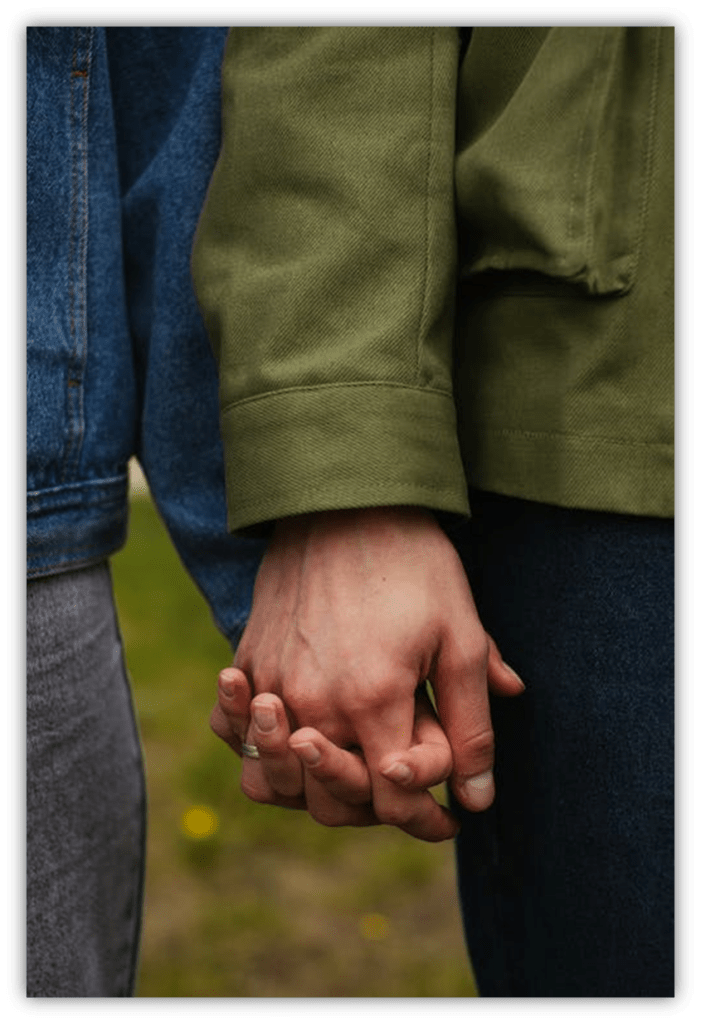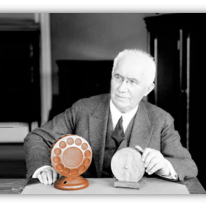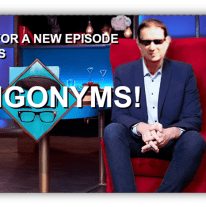
A federal judge attempts to ban a pill, long declared safe by U.S. regulatory agencies that women use to induce abortion.

State legislators try to prevent young people (and, in at least one case, adults) from seeking care to affirm their gender identity.

Other states, including my own in North Carolina, are aiming to criminalize drag shows.
What is driving these recent efforts? And how do proponents think they’ll succeed?
My Uncle Tony, a trans man who passed away in 2011, liked to write poetry.
His work wasn’t award-winning. But he knew how to get to the heart of the matter.
In my home office, I have a copy of his poem “We Are All God’s Children.” Though this poem was about same-sex relationships, its core question could apply to so many current conflicts.

“When you look at me
I’m no different than you
I come in all sizes and different hues, too
Why are you frightened?”
That’s the key question, I think.
Why are people frightened?
Is it of difference, of complexity, of the loss of control, of their presumed superiority?
Legislating from fear is a no-win move. As Prohibition ought to have taught Americans, trying to eliminate the choices of others just because you disagree with those choices flies in the face of the notions we champion in a democratic republic.
It’s also fruitless. Consenting, conscientious adults will – and ought to – follow their hearts and instincts irrespective of what fearful lawmakers decide. And young people ought to be able to turn to the adults in their lives who love them, without worrying about whether Big Government could arrest them.
Conservative legislators seem to understand this concept when it applies to guns. Why can’t they understand it when it applies to bodies?
Sometimes, the reactionary bile (it would be ironic as well as sexist to refer to it as “hysteria”) threatens to become too much to bear.
That’s when it helps me to remember:

- My grandmother, whom my family asked me not to come out to, was the one to ask me, “So when am I going to meet your friend?”

- My father, who argued with me bitterly in the mid-’80s over California’s proposed legislation to outlaw openly gay educators, a decade and a half later defended my right to stay with my partner in his upstairs apartment at my aunt’s house.
(I was the one who felt uncomfortable and recommended we stay at a nearby hotel.

- My Catholic parish hears routinely from heterosexual couples and families that one of the key reasons they joined was because of its affirming LGBTQ+ ministry.
Engagement, as difficult as it sounds, is the only way we move forward. When people become less frightened, their minds and hearts can open.
So I’ll be at the North Carolina General Assembly sometime soon – probably not in drag. (I don’t think I have the cheekbones to pull it off.)
I’ll be asking those questions: Why are you frightened?
And how can you put your fear at rest without instilling fear in others?
Let the author know that you liked their article with a “Green Thumb” upvote





It’s a great question, and it’s a question I’ve been trying to ask or puzzle out for most of my life.
I documented some of that questioning process in my write-ups about Jonathan Haidt’s The Righteous Mind. Haidt’s book pointed me to some more foundational answers to consider: some people are simply more threat sensitive than others; their dispositions and life experiences led them to different moral narratives with different moral priorities; and sometimes their moral panic came from things my own tribe was doing, knowingly or not, to provoke their embattled sense of righteousness. All of those points are really important to consider, and I do.
But they don’t paint the full picture. Social media is another really important factor, as viral moral panics are now easier than ever to engineer. Fully granted.
Crucially, though, there is a historical/institutional dimension with roots of panic that go far back, well before the internet. Ground zero in the US was perhaps the rise of fundamentalism in the 1920s in reaction to deep cultural disconnects between liberal clergy who accommodated a changing world and those who felt threatened by discoveries such as Darwin’s theory of evolution.
For our purposes, I think the real roots are in the late 1970s, when the various fundamentalist and reactionary communities started to coalesce together for a well-coordinated institutional battle against secular liberalism and progressive activism. The paradigm of siege, of a “battle for the mind” and eventually, a “culture war” became part of the right wing Christian identity.
When I was growing up, my parents were reading or watching stuff like Francis Schaeffer’s miniseries How Should We Then Live?–which was almost a Cosmos for embattled Christians living in a world where secularism threatened to render their nation debased and meaningless. The imagery of Christians as gladiators being fed to the lions was used quite frequently in Pro-Life movement publications and speeches (yes, my family was heavily involved when I was a kid).
Fear is part of the business now. It’s how they find recruits, how they raise money, and how they amass ever more wealth and power.
Once Rush Limbaugh and then Fox News came into the equation, that business model went into overdrive, and roped in far more people. Then, the internet and social media turned it up to 11,000.
I don’t know how you stop a fear machine that’s so far reaching and effective. But I think you are hitting on a crucial part of the answer when you mention physically going to the NC General Assembly and speaking in person with people. Maybe some day we can work to dismantle these larger cultural machines, or at least mute that power. But until that day comes, we need to meet with people and change their hearts and minds.
To that effect, I recently met with my mom after 3.5 years of distance. I doubt any of my arguments will penetrate the wall that this fear machinery has perfected, but perhaps I can demonstrate via simple human kindness that at least some of the fears that are being peddled are unjustified.
“ To that effect, I recently met with my mom after 3.5 years of distance.”
An important reminder that this very complex problem always boils down to the you-and-the-me.
The damage done by external influences. – regardless of political position- , is a stain on society. It’s a crime.
It’s a good question and I think a lot of it is in the answers you suggest. People fear the unknown and what they don’t understand so where they see the appearance of anything that doesn’t conform to the world view they’ve been brought up with they react against it. Some people anyway.
Elements in the media (whether traditional TV / newspaper / etc or new social media world) exploit this for their own means, ramping up the fear and driving wedges into society rather than aiding understanding. They know it will play well with certain demographics even though it’s never going to be possible to hold back the tide and return us all to the mythical time and place where everything was sunshine and roses – their version of it anyway. Its short term financial / political gain rather than long term thinking of how we move on as a society. Imposing conformity by restriction and threat that like you say is never going to be a long term solution.
It seems that in times of uncertainty and economic hardship that this comes to the fore. Its an easy and craven tactic to divert attention from the real issues and lay the blame at those that dont look or act like you.
I do wonder just how widespread ‘the fear’ is though and whether we’re just getting a distorted view based on who can shout loudest thereby generating the most column inches. Social media can be used to justify any viewpoint allowing lazy journalism to pick up just one dissenting CAPS LOCKED shouter to back up their point of view that people love / hate / are digusted by / etc etc. Do those shouters really represent the view of the many or is it just made to look that way?
Which isn’t meant to diminish the very real problems. Even if most people want an easy life and not have to think about the difficult issues or are happy to let others live how they want we’re in a world where enough people can be stirred up to shore up the power bases that keep churning this stuff out.
It’s heartening though to see that you’re active in trying address the balance and move people through understanding.
Dogmatic religions or ideologies require strict conformity and control to succeed. They exercise this control through fear of the “other,” reinforcing the insider-ness of their community. No “others” are welcome. Lately they have aimed their hatred at marginalized LGBTQ+ communities, but in the past they have gone after immigrants, Muslims, black people… it’s built into their DNA to invent “boogeymen” and exploit fear of them to exercise control over their sheep.
Many religions use the term “free-thinking” as a negative, something you should actively strive to avoid. Pema Chodron describes a continuum with fear on one side and curiosity on the other. Fearful people are easier to control and manipulate. Curious people may go in any direction as their curiosity or their soul dictates, and are thus harder to corral and depend on in the metaphorical battle Phylum was describing.
Openness and love and the solution, obviously. However it’s hard to shine a light on someone who is clinging to their darkness. Like Chuck said, the only way to succeed is at the one-on-one level. Talk openly with people you disagree with, but do so from a position of love and curiosity, not fear and judgment (easier said than done, no doubt). Nothing will entrench a brainwashed person faster than feeling lectured or judged.
I was raised in the church, so I’ve been there, I know that many of the folks following this hateful path are not hateful people. They just accept the fences that their leaders erect to separate “us” from “them.” Their definition of “we” is relatively small.
I’d argue that mankind’s challenge right now is to maximize the definition of “we” as much as possible. Other faiths, ideologies, nationalities, sexual orientations or gender identities are not “them”; they are among the many flavors of “us.” And we are all God’s children, and we all deserve love and respect.
I was watching Rachel Maddow last night. On one issue, a faction in one of our two parties aligns with the ideology of Uganda. Maddow didn’t have to editorialize. We, and I’m using the pronoun we, as not to disclude people whose opinions don’t align with my own, used to encourage African nations to be like us, not the other way around. Maddow, I get the impression, is given a longer leash than the other MSNBC hosts. During the pandemic, she, to my knowledge, was the only MSM journalist who shed light on the nursing homes crisis. Maddow went state-by-state, highlighting how nobody was paying attention to the infirm. And a task force was eventually formed to address the emergency. That’s journalism.
Same thing here. I guess Maddow and her staff comb local newspapers all day, and collect news relevant to the issue from a host of states. Put together, it can be sobering, for some. I don’t get the sense that Maddow is fearmongering.
She’s warning us.
Well stated, Chuck. Very well stated.
There is the factor it’s human nature to fear change, but that’s the whole reason we’re on this earth, is to continuously learn and expand our boundaries. We can’t progress if everything stays the same.
Unfortunately, “Progress Time” moves at different speeds depending on the community. And we know how slow everything else moves in the South…. They’ll get there. Some decade. But some areas are more comfortable with embracing change, while others feel the need to go in super teeny baby steps and think putting laws in place will help to control the speed of those baby steps. Kick the can down the road if you will, you know, like every Congressional Group since the 1780s have done with Immigration Reform?!
But all change begins from somewhere, from one person. Best of luck to you Chuck at the State Assembly. 🙂 Those of the Strongest character are the least likely to be consumed with the fear others try to put on them.
I live in Tennessee where the legislature is leading the charge against drag shows, transgender rights, women’s rights, basically any kind of right except 2nd amendment rights, which are sacrosanct. I have also spent a bit of time at the Capitol lately, mostly in support of Justin Jones and Justin Pearson, the two young black legislators who were recently ousted by their fellow representatives for a lack of “decorum” and their movement for common sense gun legislation. Fear and loathing in Nashville is evident everywhere. Just so sad. I have to hold onto the idea that it isn’t hopeless.
Describing myself, I am a religious guy. I believe in God. I believe in Jesus Christ. I believe that God loves everyone, and anything that we think about God that seems wrong or bad or cruel means that we aren’t understanding God correctly.
I can’t prove anything. I have faith. I value church participation and what it has done for me. But I know that sometimes people in the churches do really bad things.
I certainly have had to adjust my feelings towards those of other nationalities, creeds, races, orientations as I have matured. And often, it has been fellow church-goers that have helped me see the errors of my ways. Specifically, one friend in church has discussed this very topic with me–why are people really so frightened?
However you do it, let’s continue to try to be better people than we are now. Remembering that we are all works in progress helps me be more compassionate towards my neighbor.
Very late to the party. I am trying to find the words to express just how amazing this is and I keep erasing the words I type because they are inadequate. I read so many “think” pieces on this and similar topics but this one hits me much harder because it’s coming from a deeply personal place that you are willing to share with us, Chuck. The “That’s when it helps me to remember” section in particular really resonated, because if I had been in your life in the 80s, I could have easily been one of those people. A change of heart and a change of mind is possible even in the most stubborn and prideful of the lot.